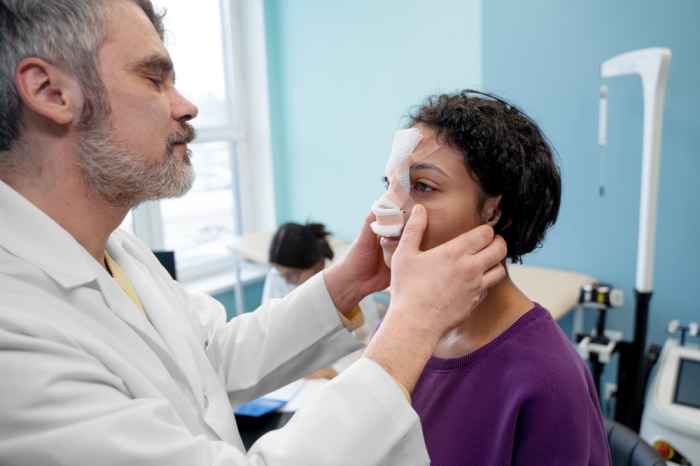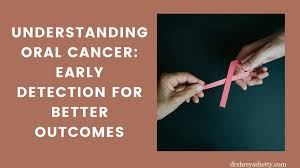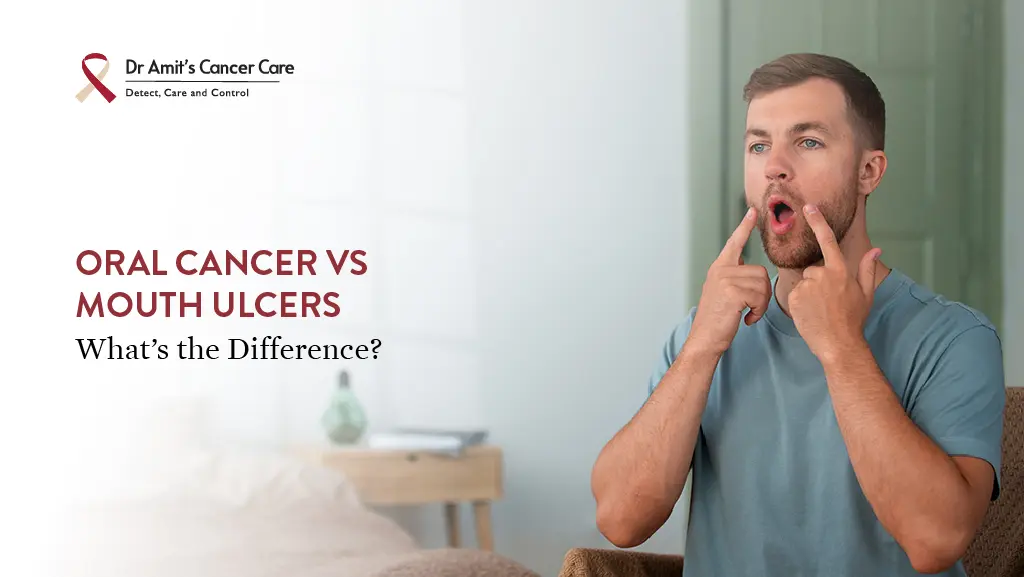Lip cancer is a serious health concern that affects many individuals in India. Understanding the typical age of occurrence, risk factors, and preventive measures associated with lip cancer is essential.
This comprehensive guide will provide valuable information to help you understand lip cancer, its impact, and how to protect yourself from this condition.
What is Lip Cancer?
Lip cancer refers to the abnormal growth of cells in the lips. It is a type of oral cancer predominantly categorised as squamous cell carcinoma, which accounts for most lip cancer cases. This condition primarily affects the lower lip but can also occur in the upper lip.
Typical Age for Lip Cancer
Lip cancer can affect individuals of different age groups, but there is a higher prevalence among specific age ranges. The most common age group affected by lip cancer is between 50 and 70 years.
However, it is essential to note that lip cancer can occur at any age, and early detection is crucial for successful treatment.
The increased prevalence of lip cancer in older individuals can be attributed to various factors. One primary reason is the cumulative exposure to risk factors, such as excessive sun exposure, tobacco use, and alcohol consumption.
Additionally, the natural aging process can weaken the immune system, making it less capable of combating cancerous cell growth.
Risk Factors for Lip Cancer
Several risk factors contribute to the development of lip cancer. Awareness of these factors is essential in understanding the potential risks and taking preventive measures. The following are the key risk factors:
Excessive Sun Exposure: Prolonged and unprotected exposure to ultraviolet (UV) radiation from the sun is a significant risk factor for lip cancer. This is especially relevant in countries like India, where the intensity of sunlight can be high. Using lip balm with sunscreen and wearing a wide-brimmed hat can provide protection.
Tobacco Use: Smoking cigarettes, cigars, or pipes increases the risk of lip cancer. The harmful chemicals present in tobacco can damage the cells of the lips, leading to abnormal growth and the development of cancer.
Alcohol Consumption: Heavy and long-term alcohol consumption, especially when combined with tobacco use, poses a higher risk for lip cancer. Alcohol weakens the immune system and makes it harder for the body to fight off cancerous cells.
Poor Oral Hygiene: Neglecting proper oral hygiene practices can contribute to the development of lip cancer. Brushing and flossing regularly and visiting a dentist for routine check-ups are essential to maintain good oral health.
Weakened Immune System: Individuals with a weakened immune system, such as those with HIV/AIDS or undergoing organ transplantation, are more susceptible to developing lip cancer.
Signs and Symptoms of Lip Cancer
Recognizing the signs and symptoms of lip cancer is crucial for early detection and treatment. The following are common signs and symptoms to be aware of:
Persistent Sores or Lumps: If you notice any sores or lumps on your lips that do not heal within two weeks, it is essential to have them evaluated by a doctor. These can be indicators of lip cancer or other oral health conditions.
Changes in Lip Color and Texture: Look out for any changes in the color or texture of your lips. Patches of red, white, or dark discoloration that persist should be monitored and brought to the attention of an oncologist.
Pain or Discomfort: Ongoing pain or discomfort in the lips that cannot be attributed to any other cause should not be ignored. It is essential to consult a doctor if you experience persistent discomfort.
Difficulty Speaking, Eating, or Swallowing: As lip cancer progresses, it can cause difficulties in speaking, eating, or swallowing. These changes may indicate a more advanced stage of the condition and require immediate medical attention.
Diagnosis and Staging
If lip cancer is suspected, an oncologist will conduct a thorough evaluation, which may include:
Physical Examination: The doctor will carefully examine your lips, mouth, and throat to look for any abnormalities or signs of cancer.
Biopsy: A biopsy involves taking a small tissue sample from the affected area for laboratory analysis. This helps confirm the diagnosis and determine the type and stage of lip cancer.
Staging lip cancer is essential in determining the appropriate treatment approach. It involves assessing the size of the tumor, its spread to nearby tissues or lymph nodes, and whether it has metastasized (spread) to distant parts of the body.
The stages range from 0 to IV, with higher stages indicating a more advanced cancer.
Treatment Options
The treatment options for lip cancer depend on several factors, including the cancer stage, the tumor’s location and size, and the overall health Of the individual. Treatment options may include:
Surgery: Surgery is often the primary treatment for lip cancer. The goal is to remove the tumor and any affected surrounding tissue. In some cases, reconstructive surgery may be necessary to restore the appearance and functionality of the lips.
Radiation therapy: Radiation therapy uses high-energy beams to target and destroy cancer cells. It may be used as the primary treatment or in combination with surgery to ensure the complete eradication of cancer cells.
Chemotherapy: Chemotherapy involves the use of powerful drugs to kill cancer cells. It may be administered orally, intravenously, or topically through creams or gels. Chemotherapy is often used in advanced stages of lip cancer or when there is a risk of cancer spreading to other parts of the body.
Immunotherapy: Immunotherapy stimulates the body’s immune system to recognize and attack cancer cells. It may be used in some instances of lip cancer to enhance the body’s natural defenses against the disease.
Targeted therapy: Targeted therapy involves using drugs that specifically target the genetic mutations or proteins in cancer cells. This approach helps to inhibit the growth and spread of cancer cells while minimizing damage to healthy cells.
The choice of treatment will depend on various factors, including the stage of cancer, the overall health of the individual, and the preferences of the patient and oncologists.
It is essential to have a thorough discussion with your lip cancer surgeon in Mumbai to determine the most appropriate treatment plan for your specific situation.
Must Watch This Video
Prevention and Lifestyle Changes
Prevention plays a crucial role in reducing the risk of lip cancer. Here are some preventive measures and lifestyle changes you can adopt:
Sun Protection: Limit your exposure to the sun, especially during peak hours when the sun’s rays are strongest. Wear protective clothing, such as wide-brimmed hats and long-sleeved shirts, and use lip balm with a high SPF to protect your lips from harmful UV radiation.
Quit Tobacco Use: If you smoke or use tobacco products, quitting is essential for reducing your risk of lip cancer. Seek support from oncologists, support groups, or cessation programs to help you quit successfully.
Moderate Alcohol Consumption: Limit your alcohol intake and avoid excessive drinking. If you drink alcohol, do so in moderation and be aware of the risks associated with heavy and long-term alcohol consumption.
Maintain Good Oral Hygiene: Practice good oral hygiene by brushing your teeth twice daily, flossing regularly, and visiting your dentist for routine check-ups. A healthy mouth can contribute to oral health and reduce the risk of developing lip cancer.
Eat a Healthy Diet: Incorporate a balanced diet rich in fruits, vegetables, whole grains, and lean proteins. These foods provide essential nutrients and antioxidants that can help boost your immune system and protect against cancerous cell growth.
Regular Self-Examinations: Perform regular self-examinations of your lips and oral cavity. Look for any changes in color, texture, or sores or lumps. If you notice anything concerning, seek medical attention promptly.
Support and Resources
Dealing with a lip cancer diagnosis can be physically and emotionally overwhelming. It is essential to seek support from oncologists, friends, and family. There are also various resources available that can provide valuable information, guidance, and emotional support. Consider reaching out to:
Cancer Support Organizations: Organizations like the Indian Cancer Society, Cancer Aid Society, or local cancer support groups can offer assistance, support, and resources for individuals with lip cancer and their families.
Specialized Healthcare Professionals: Consult with dermatologists, otolaryngologists (ear, nose, and throat specialists), or oncologists who specialize in treating lip cancer. They can provide expert guidance and support throughout your treatment journey.
Online Forums and Communities: Join online forums or communities where you can connect with other individuals who have experienced or are currently going through lip cancer. Sharing experiences, asking questions, and offering support can be invaluable in navigating your journey.
Personal Stories
Hearing personal stories from individuals who have experienced lip cancer can provide insight, inspiration, and hope.
These stories can help you understand that you are not alone and that there is a strong community of people who have successfully overcome lip cancer.
Consider reading or listening to survivors’ accounts and experiences to gain strength and motivation.
Conclusion
Understanding lip cancer, its typical age of occurrence, risk factors, and preventive measures is crucial for early detection and successful treatment.
You can reduce your risk of developing lip cancer by being aware of the signs and symptoms, seeking prompt medical attention, and adopting a preventive lifestyle.
Remember to consult with an oral cancer surgeon in Mumbai, follow their guidance, and seek your support. With awareness, early detection, and proper treatment, you can take steps towards maintaining your oral health and overall well-being.






